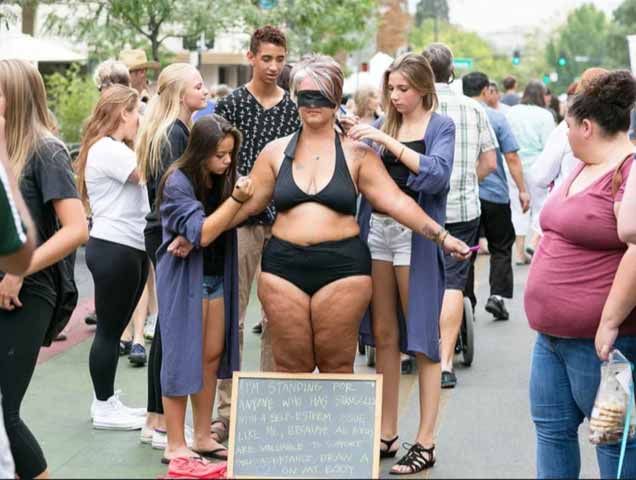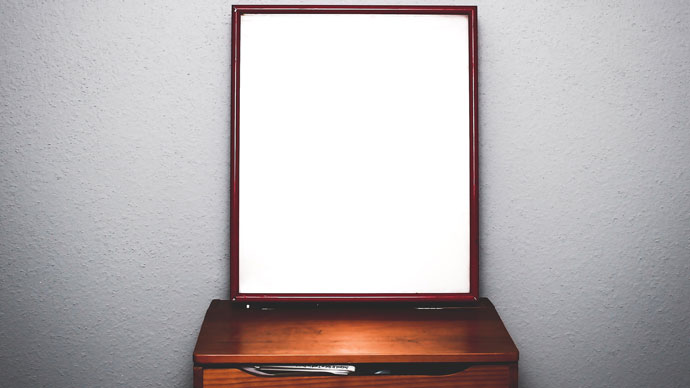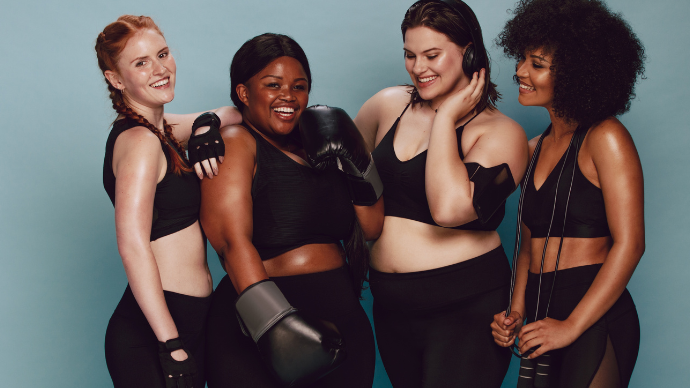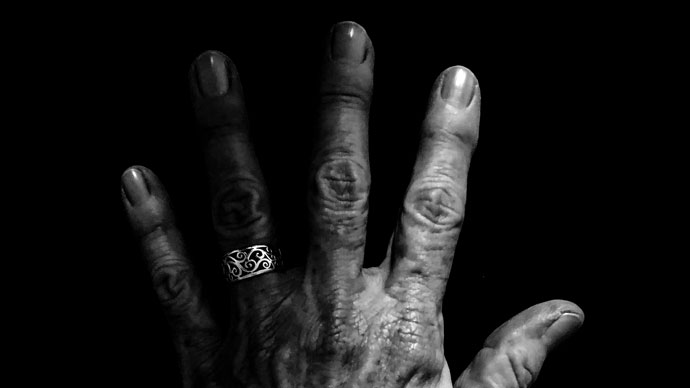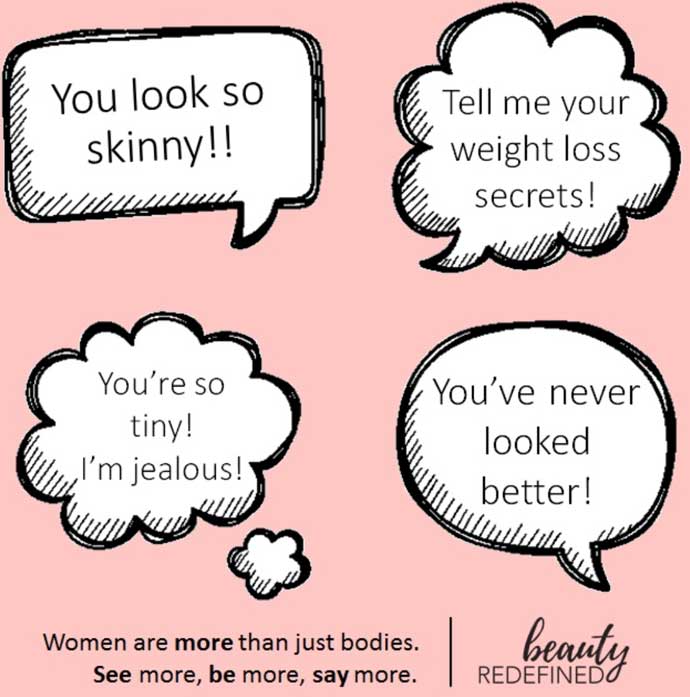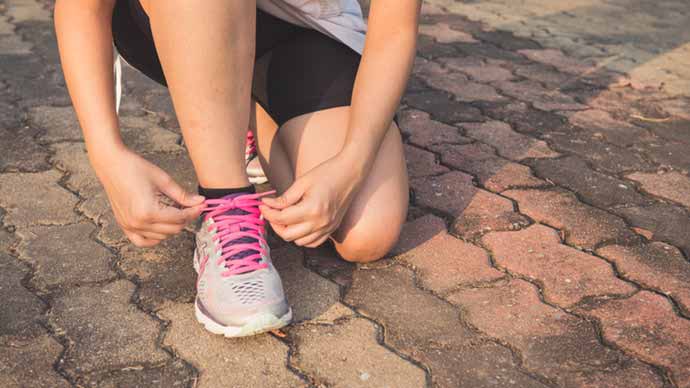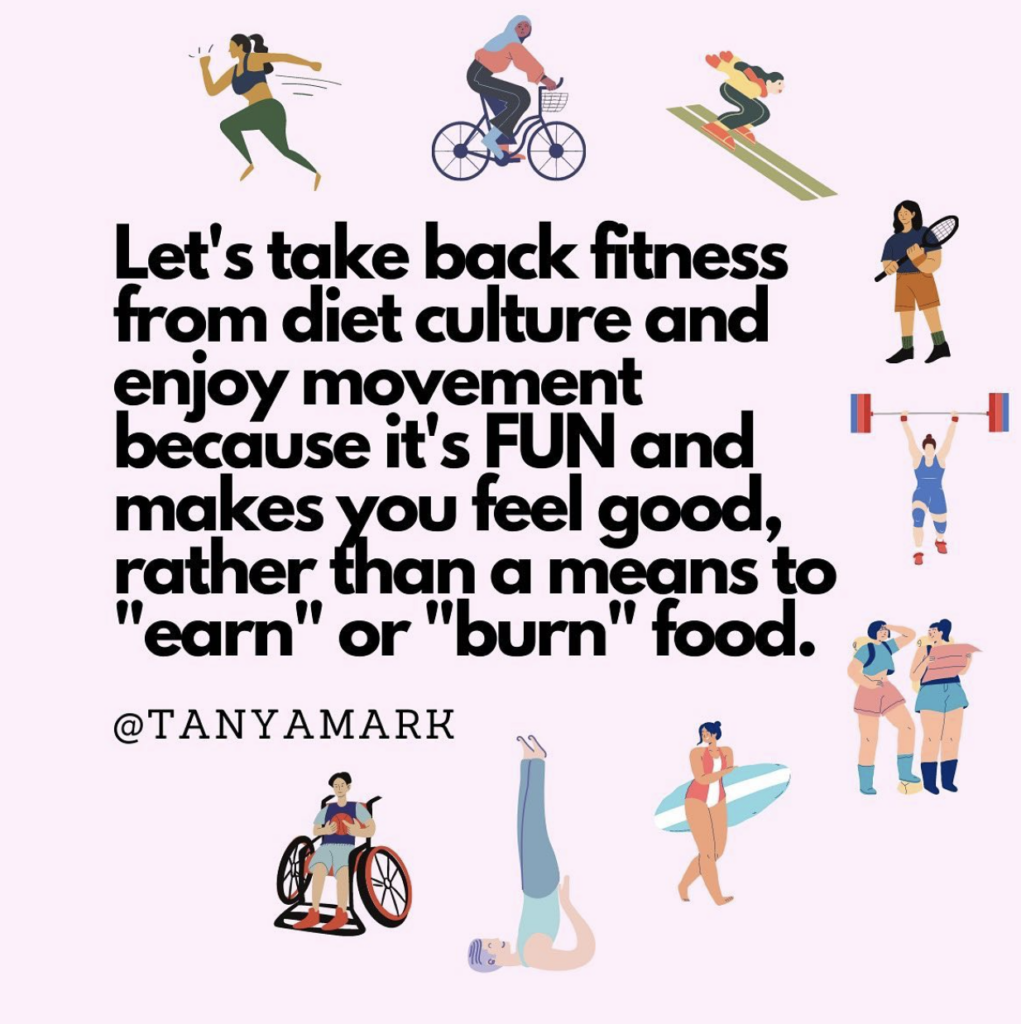Body acceptance is a radical act of self- love.
Amy Pence-Brown, a 39-year-old mother of three, is a body image activist internationally known for her radical stand for self-love at the Capitol City Public Market in 2015.
Pence-Brown stood blindfolded in a black bikini, with the following message written on a chalkboard placed at her feet, holding markers in her outstretched arms inviting the crowd to support her radical declaration of self-love.
“I am standing for anyone who has struggled with a self-esteem issue like me, because all bodies are valuable,” her sign read. “To support self-acceptance, draw a heart on my body.”
By the end of her social experiment she was covered in marker, having been drawn on by young and old, men and women. You can watch the video here.
Three years later over 200 million people have viewed this stand for radical body liberation making it one of the most viral videos of all time.
“This is powerful. This is humanity,” she said. “This is a revolution. I’m honored and blown wide open with hope.”
The shift toward body acceptance
Amy’s “Stand For Self Love” changed me.
Her radical declaration of self-love cracked open something deep inside me. I felt our shared humanness. I, too, wanted to advocate for radical acceptance — of all bodies.
Professionally, I began to see a need for this work. As a former exercise professional and “eat this, not that” nutrition coach, I held the false belief that if we exercised and ate “well” — the two magical pieces to health — we could achieve a fit and healthy “looking” body.
I was wrong.
I learned this after having hundreds of intimate conversations, often filled with tears and stress with Jacksonsites and clients around the country.
I started seeing bodies and health differently, with my eyes wide open. I started seeing myself differently.
I had made a career out of being healthy to look healthy. I took a critical look at my own body image. When I did, the worries, fears and shame that I felt about my body over the years flooded through. Now, as a 54-year old woman, I’ve added on another layer to my body image: aging.
I want to be clear about where I am at now professionally. Most clients want weight-loss which makes perfect sense. Often they, like many of us, want to eat better to feel better, but the real hope is that eating the “right” foods will help us maintain an “acceptable” size or change our bodies. This is a normal and natural reaction to living in our perfectionist body culture that says there’s only one “right” way to have body. It’s based on the false belief that there’s only one body size or shape that’s “healthy” or “attractive.”
I help clients make peace and heal their relationships with food and their bodies. I help clients gain the crucial tools to achieve true health and well-being, and support them as they disengage from the latest diet trends or body ideal.
It’s been three years since Pence-Brown’s video went viral, and I still think about it. I reached out to Amy for her wisdom on being a body image activist and radical Idahoan. When I mentioned this column, she was both excited yet surprised, in the best kind of way.
“I’ve had a lot of pushback against body positivity for years in the region, due to a long-supported fat-phobic culture with a severe dedication to healthism,” she told me.
Though her work has received positive national and international attention, regionally that has not been the case. She hopes to “pave the way to this slow opening of minds, hearts and eyes to the possibility that there might be a new way, a better way, to live and enjoy our bodies than we’ve been taught previously.”
Fat (and thin) Girls (and guys) Hiking
Body positivity activism recently made its way to our community.
This past week I attended one of two “Fat Girls Hiking, Trails Not Scales,” body positivity hikes in Jackson. Founder Summer Michaud-Skog set the ground rules: Hikers were to refrain from diet talk, body shaming or weight loss talk.
The focus was on enjoying the outdoors in whatever body you’re in. Our Jackson group was represented by different body shapes, sizes, genders and ages.
“We love getting outside as a family and exploring, teaching our kids to move their bodies, respect the earth and enjoy the outdoors,” said Stephanie Marie Martinez, who brought her entire family. “Also teaching them that body type doesn’t dictate what you can do in your life. Be it small children or fat adults.”
Elevating the body acceptance conversation
I plan to provide new ideas and perspectives on how we see bodies and dive deeper into body image in Jackson and how we might redefine health and what healthy looks like.
I also want to be honest and up front; I am still learning to navigate body image myself. My intention isn’t to “fix” body image, self-confidence or self-esteem because we are not “broken.” My intention is to be of service to this community and News&Guide readers, to infuse our hearts and spirit with compassion, for ourselves and every body; to help us see our humanness and practice radical acceptance … of all bodies, no matter what your body size, shape, gender or age.
Our hearts are craving more — to be more than bodies.
“All bodies are good bodies, imperfect as we all are,” Pence-Brown said in an interview with People magazine. “Life is too short to go on hating yourself, so start loving yourself where you are right now.”
I stand with her and with you. Like yourself. Be a rebel.
(This article was originally published in the October 3, 2018 edition of the Jackson Hole News & Guide. Radical Acceptance is a new column focusing on promoting healthy body image and redefining health).


